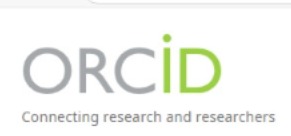Muhammadiyah And Islamic Education Reform
DOI:
https://doi.org/10.63889/pedagogy.v18i1.313Keywords:
muhammadiyah, reform, islamic education, modernization, propheticAbstract
: Muhammadiyah is an Islamic organization founded by K.H. Ahmad Dahlan in 1912 in Yogyakarta and has become one of the largest Islamic organizations in Indonesia that has an important role in Islamic education reform. Muhammadiyah integrates Islamic values with modern science to create a generation that is intellectually and morally competent. To date, Muhammadiyah has managed more than 10,000 educational institutions, ranging from early childhood education to universities spread throughout Indonesia. Talking about Muhammadiyah education is certainly inseparable from the discussion of Muhammadiyah's educational philosophy which emphasizes the integration between religious and general knowledge, rejecting the dichotomy of "world science" and "hereafter". This approach is based on the values of the Qur'an and As-Sunnah, as well as the principle of tajdid which aims to educate the life of the nation. The dynamics of Muhammadiyah's education involve adapting to various socio-political challenges from the Dutch colonial period, Japan, to the modern era, including the development of a progressiveprophetic educational model. This study uses the literature study method to examine the concept, history, and implementation of Muhammadiyah educational reform. The results of the study show that Muhammadiyah has made a significant contribution to building Islamic education based on the integration of religious and scientific values, making it a pioneer in the modernization of education in Indonesia.
References
[1] K. Khosin, “Reformasi Pendidikan Muhammadiyah di Indonesia,” Al Qalam J. Ilm. Keagamaan dan Kemasyarakatan, vol. 17, no. 2, p. 435, 2023, https://doi.org/10.35931/aq.v17i2.2003.
[2] S. Shobron, T. Trisno, M. Muthoifin, M. Mahmudulhassan, and M. N. Rochim Maksum,
“Humanist Education the Dayak of Kalimantan Indonesia Islamic Perspective,” Solo Univers. J. Islam. Educ. Multicult., vol. 1, no. 01, pp. 20–29, 2023, https://doi.org/10.61455/sujiem.v1i01.27.
[3] H. Hasnahwati, R. Romelah, and M. N. Hakim, “Konsep Keagamaan Muhammadiyah Dalam
Islam Berkemajuan: Tinjauan Manhaj Tajdid , Tarjih Dan Pendidikan Muhammadiyah,” J. Panrita, vol. 3, no. 1, pp. 40–49, 2023, https://doi.org/10.35906/panrita.v3i1.210.
[4] M. Alifuddin and S. T. Al-, “Muhammadiyah Sebagai Gerakan Pendidikan : Sejarah Eksistensi Perguruan Tinggi Muhammadiyah di Sulawesi Tenggara Pendidikan dan Muhammadiyah adalah dua hal yang merekat rapat , berjalan berkelindan , seiring melintasi lorong zaman dari segala giat warga Mu,” vol. 14, no. 1, pp. 53–74, 2021, https://doi.org/10.31332/atdbwv14i1.2197.
[5] Sukisno et al., “History of Muhammadiyah in Blora Mustika City: Development and Challenges,” Pakistan J. Life Soc. Sci., vol. 22, no. 2, pp. 812–821, 2024, https://doi.org/10.57239/PJLSS-2024-22.2.0059.
[6] M. Maemonah, H. Zuhri, M. Masturin, A. Syafii, and H. Aziz, “Contestation of Islamic educational institutions in Indonesia: Content analysis on social media,” Cogent Educ., vol. 10, no. 1, 2023, https://doi.org/10.1080/2331186X.2022.2164019.
[7] N. Khosiah, M. Nurhakim, and S. Amin, “Konsep Filsafat Pendidikan Muhammadiyah,” ALMUADDIB J. Kaji. Ilmu Kependidikan, vol. 6, no. 3, pp. 648–664, 2024, https://doi.org/10.46773/muaddib.v6i3.1172.
[8] I. Taofik and A. Basit, “Konsep Pendidikan Multikultural Di Lembaga Pendidikan Muhammadiyah (Studi Pemikran Prof. Dr. Abdul Mu’ti, M.Ed.),” J. Kaji. Islam dan Masy., vol. 5, no. 1, p. 53, 2022, https://doi.org/10.24853/ma.5.1.53-78.
[9] A. Akrim, H. R. Setiawan, S. Selamat, and N. Ginting, “Transformation of Islamic education curriculum development policy in the national education system,” Cypriot J. Educ. Sci., vol. 17, no. 7, pp. 2538–2552, 2022, https://doi.org/10.18844/cjes.v17i7.7685.
[10] A. B. Mahesa, Faisal Ramadhan, Tri Wirahadi Kusuma, Muhammad Farid Alfian, and Febri
Nur Hudanansyah, “Muhammadiyah Sebagai Gerakan Pembaharuan Pendidikan Islam,” J. Sos. J. Penelit. Ilmu-Ilmu Sos., vol. 24, no. 2, pp. 68–74, 2023, https://doi.org/10.33319/sos.v24i2.133.
[11] R. Hidayati, A. Rahman, and Z. Nuryana, “Character education and the rise of mental health in Muhammadiyah Boarding School,” Int. J. Public Heal. Sci., vol. 11, no. 1, pp. 170–178, 2022, https://doi.org/10.11591/ijphs.v11i1.20889.
[12] E. Saktiani, M. Muthoifin, and M. Jamuin, “Ahmad Muflih Saefuddin’s Educational Thought: Islamization of Science and Campus,” Proc. Int. Conf. Islam. Muhammadiyah Stud. (ICIMS 2022), vol. 676, no. Icims, pp. 281–288, 2022, https://doi.org/10.2991/assehr.k.220708.035.
[13] Mahmud, Metodologi Penelitian, 4th ed., vol. 11, no. 1. Depok, 2020.
[14] Y. Utami, M. N. Shabrina, and ..., “Literature-Based Education Figure Islam as an Effort to Develop Islamic Character in Children in The 4.0 Era,” Indones. J. Early …, vol. 12, no. 1, pp. 29–36, 2023, https://doi.org/10.15294/ijeces.v12i1.67614.
[15] A. Akso, U. Karimah, and F. Faridah, “Filsafat Pendidikan: Studi Pemikiran K.H. Ahmad Dahlan di Indonesia,” MISYKAT J. Ilmu-ilmu Al-Quran Hadist Syari ah dan Tarb., vol. 7, no. 1, p. 71, 2022, https://doi.org/10.33511/misykat.v7n1.71-85.
[16] A. Khoirudin, Z. Baidhawy, and M. R. M. Nor, “Social Reconstruction in Indonesia : Humanitarian and,” J. Al-Tamaddun, vol. 15, no. 1, pp. 183–197, 2020, https://doi.org/10.22452/JAT.vol15no1.13.
[17] R. H. A. Abdul Munir Mulkhan, “Filsafat Pendidikan Kemuhamadiyahan Membangun Relasi dan Konstruksi Keilmu.pdf.” Suara Muhammadiyah, Yogyakarta, 2019.
[18] A. Hidayanto, A. Hikmatiyar, and S. Huda, “Study Of Muhammadiyah Studies KH Ahmad
Dahlan ’ s Teachings : Foundation of Muhammadiyah Educational Philoshopy Pendahuluan Metode,” J. Islam. Muhammadiyah Stud., vol. 6, no. 1, pp. 1–8, 2024, https://doi.org/10.21070/jims.v6i1.1584.
[19] M. Jannah, “Analysis of Muhammadiyah educational concepts : a historical and philosophical review,” Attarbiyah J. Islam. Cult. Educ., vol. 8, no. 1, pp. 31–46, 2023, https://doi.org/10.18326/attarbiyah.v8i1.31-46.
[20] T. Sulistyono, “Filsafat Pendidikan Menurut Muhammadiyah Tesis,” 2022.
[21] A. Ruslan, “Falsafah Ajaran Kyai Ahmad Dahlan Dan Etos Pendidikan Muhammadiyah,” Chronol. J. Hist. Educ., vol. 2, no. 1, pp. 46–54, 2020, https://doi.org/10.22236/jhe.v2i1.5620
[22] M. S. Marsudi and Z. Zayadi, “Gerakan Progresif Muhammadiyah Dalam Pembaharuan Pendidikan Islam Dan Sosial Keagamaan Di Indonesia,” Mawa Izh J. Dakwah Dan Pengemb. Sos. Kemanus., vol. 12, no. 2, pp. 160–179, 2021, https://doi.org/10.32923/maw.v12i2.2035.
[23] S. Suidat, A. Husaini, D. Saefuddin, and E. Mujahidin, “Civic Education At Muhammadiyah Higher Education: Development Study of Hand Book of Menuju Kehidupan Yang Demokratis
Dan Berkeadaban,” Profetika J. Stud. Islam, vol. 18, no. 1, pp. 1–17, 2017, https://doi.org/10.23917/profetika.v18i1.6296.
[24] A. Khoirudin, Z. Baidhawy, and M. R. M. Nor, “Exploring muhammadiyah’s historical civilizational dimension of social reconstruction in Indonesia: Humanitarian and cosmopolitan approaches,” J. Al-Tamaddun, vol. 15, no. 1, pp. 183–197, 2020, https://doi.org/10.22452/JAT.vol15no1.13.
[25] P. Chandra, “Ka Pendidikan Muhammadiya Ah ; Eksistensi dan Modernisasi Sekolah
Muhammad adiyah di Bengkulu Selatan ",” Conciencia, vol. 1, pp. 56–69, 2019, https://doi.org/10.19109/conciencia.v18i2.2643.
[26] B.- Budiman, M. Murniyanto, and D. Wanto, “Sejarah Pendidikan Islam Di Era Moderasi Di Muhammadiyah Rejang Lebong,” Al-Madrasah J. Pendidik. Madrasah Ibtidaiyah, vol. 6, no. 3, p. 754, 2022, https://doi.org/10.35931/am.v6i3.1069.
[27] F. Anas, “Dinamika Pendidikan Muhammadiyah Pada Masa Penjajahan Jepang Di Yogyakarta Tahun 1942-1945,” J. Penelit. Sej. Dan Budaya, vol. 9, no. 1, pp. 137–162, 2023, https://doi.org/10.36424/jpsb.v9i1.368.
[28] H. S. Ritonga, A. Andari, and ..., “Dinamika dan Kontribusi Pendidikan Muhammadiyah di
Indonesia: Studi Kasus di Sekolah Dasar,” Didakt. J. Pemikir. Pendidik., vol. 12, no. 4, pp. 731– 738, 2023.
[29] M. Hatija, “Tantangan Dan Pembaharuan Muhammadiyah Dalam Dunia Pendidikan Islam,” J. Stud. Pendidik. Islam, vol. 6, no. 2, pp. 215–229, 2023, https://doi.org/10.15575/altsaqafa.v17i1.6678.
[30] W. Lenggono, “Lembaga Pendidikan Muhammadiyah (Telaah Pemikiran K.H. Ahmad Dahlan Tentang Pembaharuan Pendidikan Islam di Indonesia),” Islam. J. Pemikir. Islam, vol. 19, no. 1, pp. 43–62, 2018, https://dx.doi.org/10.30595/islamadina.v19i1.2897.
[31] M. Hasan, S. Hasan, A. Anita, A. Yasir, and B. Basirun, “Kebijakan Sistem Penyelenggaraan
Pendidikan Islam Di Indonesia Zaman Pra Kemerdekaan Masa Kolonial Belanda Dan Jepang,” Al Wildan J. Manaj. Pendidik. Islam, vol. 1, no. 3, pp. 126–136, 2023, https://doi.org/10.57146/alwildan.v1i3.711.
[32] Y. Dianti, “Dinamika Gerakan Muhammadiyah di Era Sebelum Kemerdekaan Dalam Merintis Gerakan Tajdid Keumatan,” Angew. Chemie Int. Ed. 6(11), 951–952., pp. 5–24, 2017.
[33] H. Hadisaputra, M. Bosra, and A. A. Nur, “Studi Naratif Politisi Muhammadiyah pada Era Orde Lama Hingga Orde Baru (Biografi Abdul Wahab Radjab),” Hist. J. Progr. Stud. Pendidik. Sej., vol. 10, no. 2, p. 261, 2022, https://doi.org/10.24127/hj.v10i2.5988.
[34] T. Anjasari, “Kebijakan Pendidikan Islam di Era Orde Lama dan Orde Baru,” J. Stud. Islam dan
Kemuhammadiyahan, vol. 2, no. 2, pp. 141–155, 2022, https://doi.org/10.18196/jasika.v2i2.34
[35] A. Mu’ti, “Akar Pluralisme dalam pendidikan Muhammadiyah,” Afkaruna, vol. 12, no. 1, pp. 1–42, 2016, https://doi.org/10.18196/aiijis.2016.0053.1-42.
[36] P. Nugroho, “Internalization of Tolerance Values in Islamic Education,” Nadwa J. Pendidik. Islam, vol. 12, no. 2, pp. 197–228, 2019, https://doi.org/10.21580/nw.2018.12.2.2397.
[37] M. A. Akbar and I. Mursal, “Modernisasi Pendidikan Islam Pada Organisasi Muhammadiyah Di Indonesia,” Sasana J. Pendidik. Agama Islam, vol. 1, no. 2, pp. 70–76, 2023, https://doi.org/10.56854/sasana.v1i2.153.
[38] S. Daulay and R. A. Dalimunthe, “Modernisasi Pendidikan Islam Di Indonesia (Komparasi Pengalaman Organisasi Muhammadiyah dan Nahdlatul Ulama),” Fitrah J. Islam. Educ., vol. 2, no. 2, pp. 125–140, 2021, https://doi.org/10.53802/fitrah.v2i2.70.
[39] S. Suyatno, “Relevansi Pendidikan Muhammadiyah dalam Menghadapi Era Smart Society 5.0,” J. Basicedu, vol. 8, no. 2, pp. 1190–1199, 2024, https://doi.org/10.31004/basicedu.v8i2.7339.
[40] S. Tentiasih, “Peran Muhammadiyah Dalam Meningkatkan Kualitas Pendidikan Islam di Indonesia,” J. Ilmu Pendidik. Muhammadiyah Kramat Jati, vol. 3, no. 2, pp. 60–69, 2023.
Downloads
Published
How to Cite
Issue
Section
License
Copyright (c) 2025 Yeri Utami, Yunanto Andang Tri

This work is licensed under a Creative Commons Attribution-ShareAlike 4.0 International License.






